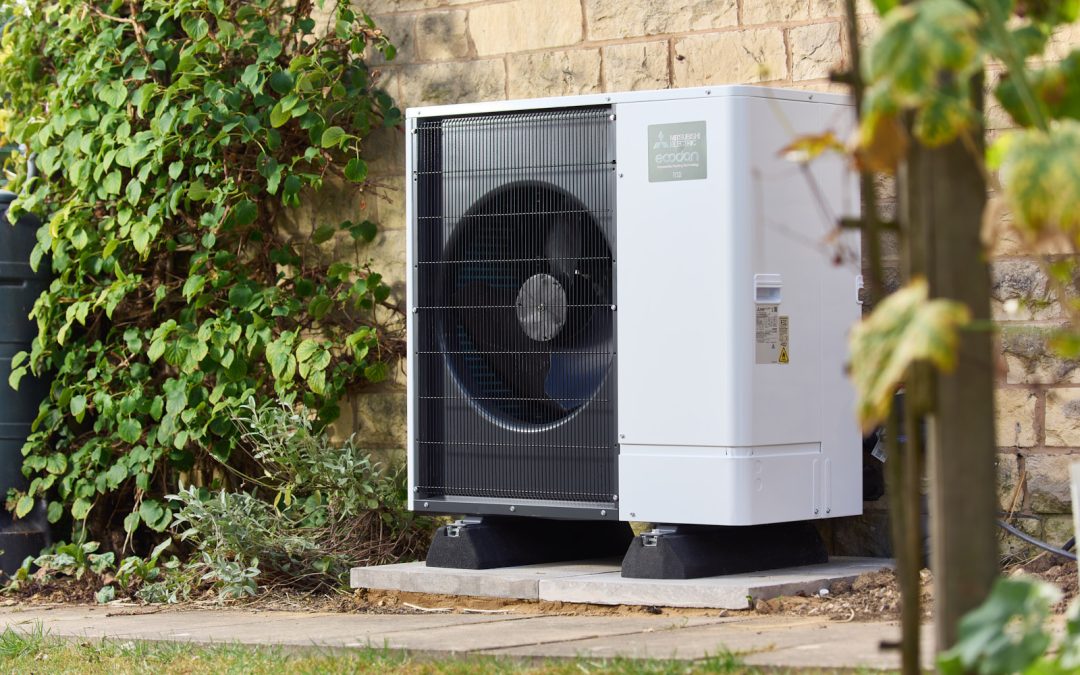According to the National Audit Office (NAO) In 2021, heating the UK’s 28 million homes accounted for 18% of all greenhouse gas emissions.
There are numerous main sources as to why the percentage of greenhouse gas emissions is so high, UK houses rely on fossil fuels for heating, particularly natural gas in boilers.
In simpler terms, natural gas combustion releases carbon dioxide into the atmosphere, contributing to climate change.
At ORB Mechanical and Electrical, we’re experts in residential construction and have the M&E knowledge to understand further key factors contributing to this such as:
- Gas boilers – many UK homes are heated using gas boilers connected to the gas grid. While natural gas is a convenient and relatively inexpensive fuel for heating, burning it releases CO2 emissions.
- Heating systems – many homes in the UK have older, less efficient heating systems that consume more energy and produce higher emissions. These systems may lack proper insulation, have outdated boilers, or use inefficient heating controls.
- The demand for energy – during colder months, the energy demand will be much higher in the UK.
- Building stock – the UK housing market has a diverse stock, which includes older buildings with poor insulation and energy performance.
While we know there is an increasing interest and investment in low-carbon heating technologies such as heat pumps and district heating, the adoption rate is much lower when it comes to residential construction.
So, what is the UK Government’s overall strategy?
The UK must achieve Net Zero Greenhouse Gas Emissions by 2050.
Back in October 2021, the Government posted its Heat and Buildings Strategy. Within this strategy, it included several commitments aimed at developing markets and consumer choices for heat pumps and networks.
Here’s a breakdown of the following commitments mentioned:
- Growing the supply chain for heat pumps to a minimum market capacity of 600,000 heat pump installations per year by 2028.
They also need to make sure that heat pumps and heat networks are accessible along with affordability for homeowners and landlords.
- To end the installation of new fossil fuel boilers by 2035.
This timeline aligns with the UK’s broader climate goals and reflects the need to transition to low-carbon heating sources to reduce greenhouse gas emissions.
- The promotion of renewable energy
The strategy likely includes measures to promote the use of renewable energy sources for heating, such as solar thermal systems and biomass boilers.
- Energy-efficient improvements
This may involve energy-efficient upgrades such as installation, smart heating controls, double glazing, to reduce heat demand and enhance the performance of low-carbon heating systems.
- Developing the evidence for strategic decisions in 2026
The future role of hydrogen in home heating, and therefore the future heating technology mix.
The National Infrastructure Commission (https://nic.org.uk/), advised the Government on the long-term infrastructure challenges the UK is facing. They recommended that the Government should not support hydrogen for home heating.
The Government maintains that it needs to establish the evidence base before making decisions on hydrogen but has also stated that individuals shouldn’t hold back on installing a heat pump or connecting to a heat network on the basis that hydrogen might be an option later.
What are Heat Pumps? Are they Worth it?
Heat pumps are devices that transfer heat from one location to another using a refrigeration cycle.
They can be used for both heating and cooling purposes but are mostly used for heating. Extracting heat from a source such as ground, air, or water and transferring it into a building to provide warmth.
There are three main heat pumps provided and used in homes throughout the UK:
- Air Source Heat Pumps (ASHP) – These extract heat from the outside air and can provide both space heating and hot water.
- Ground Source Heat Pumps (GSHP) – These extract heat from the ground via pipes buried in the ground and can provide space heating and hot water.
- Water Source Heat Pumps – These extract heat from a water source, such as a lake or river, and can provide space heating and hot water.
Department for Energy Security and Net Zero Summary (DESNZ)
At ORB Mechanical and Electrical, we like to keep information short and sweet. In 2021, the Government published its Heat and Buildings Strategy, which included whether it has established a clear pathway to decarbonising home heating in a way that is valuable for homeowners.
The adoption of heat pumps in the UK has started, which in a nutshell includes the following initiatives:
- Financial incentives include schemes such as Renewable Heat Incentive – https://www.gov.uk/domestic-renewable-heat-incentive
- Regulatory Support – The UK Government has introduced regulations and standards to support the deployment of heat pumps. For example, building regulations have been updated to require the installation of low-carbon heating systems in new buildings and major renovations.
- Awareness and Education – The UK Government has undertaken efforts to raise awareness and educate consumers about the benefits of heat pumps including, extra guidance on the technology, incentives, and how to find qualified installers.
- Pilot Demonstrations – Various demonstrations have been conducted to showcase the feasibility and benefits of heat pump technology in different settings.
- Research – The UK Government has developed advanced heat pump technology to drive costs down. This includes funding for innovation projects, technology trials, and collaborative research initiatives to improve the efficiency, performance, and affordability of heat pumps.
Decarbonising Home Heating Roundup
At ORB Mechanical and Electrical, we acknowledge that decarbonising home heating is one of the biggest challenges the Government is facing to achieve net zero, as most households are required to engage in such a movement.
Read the report here from the Nation Audit Office – https://www.nao.org.uk/wp-content/uploads/2024/03/Decarbonising-home-heating-HC-581.pdf
Contact the ORB Mechanical and Electrical team today if you have a residential or commercial project idea. We have experience installing heat pumps on substantial projects around Bristol and the South West.


